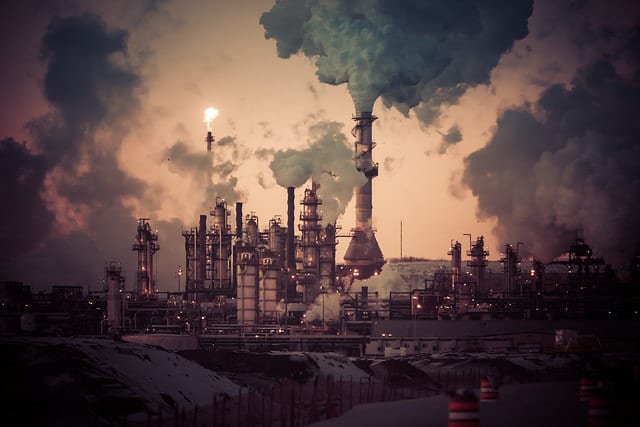Investments in renewable energies and low-carbon infrastructure can help the environment and the economy at the same time, says a comprehensive new report released Tuesday.
The report — Better Growth Better Climate — found that about US $90 trillion will likely be invested in infrastructure in the world’s cities, agriculture and energy systems over the next 15 years, unleashing multiple benefits including jobs, health, business productivity and quality of life.
“The decisions we make now will determine the future of our economy and our climate,” Nicholas Stern, Co-Chair of the Global Commission on the Economy and Climate, said in a media release.
“If we choose low-carbon investment we can generate strong, high-quality growth – not just in the future, but now. But if we continue down the high-carbon route, climate change will bring severe risks to long-term prosperity,” he said.
Felipe Calderón, Chair of the Global Commission on the Economy and Climate, said the report refutes the idea that humankind must choose between fighting climate change or growing the world’s economy.
“That is a false dilemma,” Calderón said. “Today’s report details compelling evidence on how technological change is driving new opportunities to improve growth, create jobs, boost company profits and spur economic development. The report sends a clear message to government and private sector leaders: we can improve the economy and tackle climate change at the same time.”
The 71-page report was presented to governments and business and finance leaders at a global launch event at the UN headquarters in New York City, attended by United Nations Secretary General Ban Ki-moon. The report arrives just one week before the UN Climate Summit.
It concluded that countries at all levels of income have the opportunity to build lasting economic growth at the same time as reducing the immense risks of climate change.
“This is made possible by structural and technological changes unfolding in the global economy and opportunities for greater economic efficiency,” the report said. “The capital for the necessary investments is available, and the potential for innovation is vast. What is needed is strong political leadership and credible, consistent policies.”
The next 15 years will be critical, the report said, as the global economy will grow by more than half, a billion more people will live in cities, and rapid technological advances will continue to transform society.
“The next 15 years of investment will also determine the future of the world’s climate system. Climate change caused by past greenhouse gas emissions is already having serious economic consequences, especially in more exposed areas of the world.”
The report added that without stronger action in the next 10 to 15 years it is near certain that global average warming will exceed 2°C, the level the international community has agreed not to cross.
“On current trends, warming could exceed 4°C by the end of the century, with extreme and potentially irreversible impacts. By building up greenhouse gas concentrations and locking in the stock of high-carbon assets, delay in reducing emissions makes it progressively more expensive to shift towards a low-carbon economy.”
The report noted, however, that future economic growth does not have to copy the high-carbon, unevenly distributed model of the past.
It said there is now huge potential to invest in greater efficiency, structural transformation and technological change in three key systems of the economy — cities, land use and energy systems.
Describing cities as engines of economic growth, the report said how they develop in the future will be critical to the global economy and climate change. “More compact and connected urban development, built around mass public transport, can create cities that are economically dynamic and healthier, and that have lower emissions.”
In terms of land use, the report says productivity will determine whether the world can feed a population projected to grow to over eight billion by 2030, while sustaining natural environments. “Food production can be increased, forests protected and land use emissions cut by raising crop and livestock productivity, using new technologies and comprehensive approaches to soil and water management.”
With regard to energy systems, the report said humankind is on the cusp of a clean energy future. “Coal is riskier and more expensive than it used to be, with growing import dependence and rising air pollution. Rapidly falling costs, particularly of wind and solar power, could lead renewable and other low-carbon energy sources to account for more than half of all new electricity generation over the next 15 years.”
The report also states faulty policy and a reliance on market economics has led to increased emissions. Annual subsidies for clean energy amount to around $100 billion each year, while subsidies for polluting fossil fuels are at about $600 billion.
“Phasing out fossil fuel subsidies can improve growth and release resources that can be reallocated to benefit people on low incomes. A strong and predictable price on carbon will drive higher energy productivity and provide new fiscal revenues, which can be used to cut other taxes. Well-designed regulations, such as higher performance standards for appliances and vehicles, are also needed.”
The report also said that low-carbon forms of infrastructure are essential to reduce current emissions trajectories. Stimulating innovation in technologies, business models and social practices can also reduce emissions while driving economic growth.
As part of its 10 key recommendations, the report asks politicians to accelerate a low-carbon transformation by integrating climate change considerations into core economic decision-making processes, enter into a strong, lasting and equitable international climate agreement, phase out subsidies for fossil fuels and agricultural inputs as well as incentives for urban sprawl, and introduce strong, predictable carbon prices as part of good fiscal reform and good business practice.
Image Credit: Kris Krug via Flickr
Subscribe to our newsletter
Stay up to date with DeSmog news and alerts






